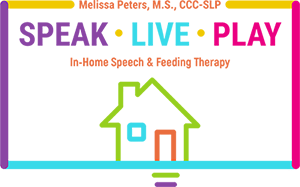Tips For Supporting Children With Articulation Disorder
Children affected by speech sound disorders face difficulty accurately producing certain word sounds. This can manifest as substituting one sound for another, resulting in speech that may sound slurred or unclear. While receiving speech therapy is crucial for addressing these articulation problems, practical strategies can be implemented outside of therapy sessions to help enhance your child’s articulation skills.
By adding specific exercises and activities to your child’s daily routine, you can actively help them make progress in overcoming speech sound disorder. These exercises, combined with consistent practice, enable children to develop the ability to produce sounds correctly and improve their overall speech clarity. Additionally, singing, reading aloud, and playing word games can reinforce speech sound production skills.
Furthermore, creating a supportive and encouraging environment for your child as they work on their articulation skills is important. Positive feedback and reinforcement will boost their confidence and motivation, ultimately contributing to their progress. Consistent practice and patience are key when helping your child navigate speech sound disorder.
Follow These Tips To Help Your Child With Articulation Problems
Daily Revision Practice
To support your child’s speech sound disorder, engaging in daily revision exercises is recommended. In these exercises, actively repeat what your child has said, emphasizing the correct pronunciation and placing additional emphasis on any incorrect word sounds. This cool technique can be used in different settings, turning regular situations into awesome chances to strengthen articulation skills. Incorporating this practice into your routine can effectively enhance your child’s speech development and promote clearer communication.
 Avoid Imitating Errors
Avoid Imitating Errors
Instead of imitating your child’s pronunciation errors, actively demonstrate correct speech patterns. Doing so can help address a speech sound disorder in a supportive manner. While your child’s unique pronunciations may be charming, refraining from reinforcing incorrect articulation through laughter or repetition is crucial. Instead, consider capturing these adorable moments on video, which can be revisited once successful corrections have been made. This approach ensures your child receives the necessary guidance and support to overcome speech sound disorders effectively.
Read Aloud Regularly
Reading aloud to your child actively contributes to their holistic development, including improving speech. You can seamlessly transform every story session into a highly effective speech lesson by modeling proper articulation while reading. This approach becomes even more impactful when utilizing books specifically crafted to enhance articulation skills. Incorporating this practice into your routine can greatly benefit children with speech sound disorders, ensuring steady progress in their speech abilities. So, make it a habit to engage in this interactive and educational activity, fostering their communication skills and nurturing their overall growth.
 Incorporate Modeling into Play
Incorporate Modeling into Play
In addition to reading, actively demonstrate and practice proper speech during playtime, an engaging platform for incorporating valuable speech lessons. Whether immersed in interactive board games, imaginative play scenarios, or exploring the wonders of nature through invigorating walks, these leisure activities provide dynamic settings for subconscious learning. This makes the learning process enjoyable for your child and facilitates the development of speech skills. By integrating these activities into your child’s routine, you can effectively address and manage speech sound disorders, ensuring they receive the necessary support and guidance to improve their communication abilities.
Narrate Daily Routines
During your daily routines, such as getting ready for daycare or school, make it a habit to actively narrate the activities you and your child are engaged in. By deliberately narrating and using a variety of transitional words, you can provide your child with ample opportunities to practice a diverse range of words in different contexts. Taking an active approach like this greatly enhances your child’s articulation skills, which is especially valuable for individuals with speech sound disorders. Incorporating this technique into your daily interactions can help your child develop and strengthen their ability to articulate words effectively. So, remember to actively narrate and encourage your child’s speech development to support their journey towards clearer and more confident communication!
 Practice Successful Words
Practice Successful Words
When it comes to addressing a speech sound disorder, it is crucial to model correct pronunciation for challenging words, but actively practicing the words your child has successfully corrected is equally vital. Doing this not only reinforces their sense of accomplishment but also helps solidify the positive changes that have been made during the learning process. Moreover, integrating transitional words throughout the practice sessions can augment their comprehension and retention of the rectified speech sounds. So, remember to prioritize active practice alongside correct modeling to support your child’s progress in overcoming their speech sound disorder.
Seek Professional Help
If you have any worries about your child’s speech and language development, reach out to Speak Live Play. Our awesome team offers personalized consultations to meet your child’s needs. Let us help nurture their communication skills. We’re here to support you every step of the way!



 Avoid Imitating Errors
Avoid Imitating Errors Incorporate Modeling into Play
Incorporate Modeling into Play Practice Successful Words
Practice Successful Words

